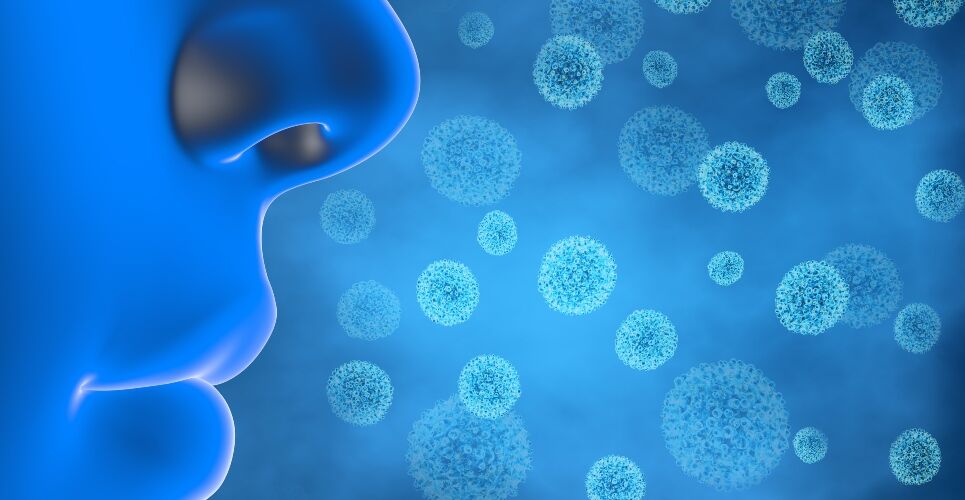Patients with allergic rhinitis who take a liquid sublingual allergen immunotherapy (SLIT-liquid) have a significant reduction in the risk of asthma onset or worsening for up to eight years compared with patients taking symptomatic allergic rhinitis therapies alone, a large real-world study has found.
Allergic rhinitis affects 400 million people worldwide, with one third of these patients also having allergic asthma, the French researchers wrote in The Lancet Regional Health – Europe.
Current allergic rhinitis management strategies aim to control symptoms and reduce inflammation, with oral or nasal antihistamines or intranasal corticosteroids the recommended first-line treatments.
Allergen immunotherapy (AIT) – currently the only causal treatment option for allergic disease – might be indicated in combination with pharmacotherapy if the response to first-line therapies was inadequate or absent, researchers said.
AIT is recommended to be administered for at least three years, either subcutaneously or sublingually, with tablets or liquid formulations.
Randomised controlled trials and observational studies have confirmed the efficacy and safety of AIT in allergic rhinitis, with or without asthma, but data has been limited on the impact of AIT on asthma onset and worsening.
For the national EfficAPSI real-world study, researchers analysed a cohort of 112,492 people with allergic rhinitis who initiated personalised SLIT-liquid (brand name Staloral) and 333,082 controls who were dispensed allergic rhinitis symptomatic medication but had no history of receiving allergen immunotherapy.
Data on the control patients were taken from the French national health data system SNDS, with data on the exposed patients taken from the database of SLIT-liquid manufacturer Stallergenes Greer, which also funded the EfficAPSI study.
One third of patients in both groups had a history of mild-to-moderate asthma, the study authors noted.
Among the exposed patients, two thirds were treated for a single allergen, mainly house dust mites and grass pollen.
The median follow-up was 6.9 years for exposed patients and 8.2 years for the control group.
First author Professor Pascal Demoly, professor of pulmonology and head of department at the University Hospital of Montpellier, France, and co-authors said that they found a 36% reduction overall in the risk of new asthma events in patients treated with SLIT-liquid compared with controls.
SLIT-liquid exposure was associated with a significantly lower risk of asthma onset according to three definitions: combined: HR 0.64, sensitive: HR 0.76, and specific: HR 0.66.
The sensitive definition of asthma events considered the first asthma drug dispensation, hospitalisation or long-term disease for severe asthma, the researchers explained.
The specific definition omitted drug dispensation and the combined one considered the dispensations of specific asthma medications, hospitalisation or long-term disease for severe asthma.
Professor Demoly and colleagues said: ‘Of note, our results showed a greater reduction in younger patients which highlights the interest of starting AIT as early as possible.’
In patients with pre-existing asthma, the Global Initiative for Asthma (GINA) treatment step-up evolution was also analysed, with researchers finding SLIT-liquid exposure was associated with a one-third reduction in GINA step-up regardless of baseline treatment step.
‘Our findings support the long-term effectiveness of personalised SLIT-liquid in real-life for the treatment of [allergic rhinitis] patients with and without pre-existing asthma and substantiate its evidence as a relevant causal treatment option for patients with respiratory allergies, for all ages and allergens considered, with abilities to prevent both disease onset and progression,’ the researchers concluded.
This follows similar research from Germany in 2021, which found allergen immunotherapy for allergic rhinitis and/or asthma remained effective over a nine-year follow-up period.

